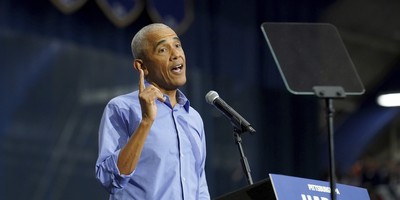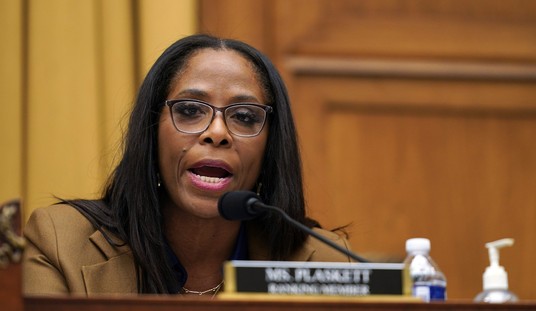In Abraham Lincoln's first Inaugural Address, the 16th president appealed to the "better angels of our nature."
In a recent speech in Prescott, Ariz., where Barry Goldwater launched his 1964 presidential campaign, Sen. John McCain made a similar appeal for this presidential campaign to avoid partisan sniping and instead engage in civil debate.
Lincoln's appeal to angels was overcome by the devils of the Civil War. And Lyndon Johnson routed Barry Goldwater in the 1964 election, in part because Goldwater was smeared as a warmonger.
Like Lincoln, McCain is trying to rise above the din and elevate the level of political discourse. In his Arizona speech he said, "Let us remember, we are not enemies. We are compatriots defending ourselves from a real enemy. We have nothing to fear from each other."
Democratic presidential candidate Barack Obama has said similar things about jettisoning the polarization of the past and talking to each other with respect.
All of this sounds noble and the stuff of congeniality awards, but can it work beyond primary season? When the going gets tough, will one or both candidates be forced to launch verbal missiles? Can either or both candidates declare conscientious objector status and still hope to win a political war?
McCain and Obama will have people on their "side" dispensing plenty of rhetorical fire. Ed Schultz, a liberal talk-radio host, has called McCain a "warmonger." Schultz's comment came at an Obama fund-raiser in Grand Forks, N.D. Obama had not yet arrived in the room and apparently was not told of Schultz's remark because he made no reference to it in his speech or afterward (contrast this with McCain's immediate denunciation of anti-Obama comments by his supporters, which he deemed inappropriate).
Recommended
The next day, an Obama spokeswoman issued a statement that sought to distance Obama from Schultz's comment. It said, "John McCain is not a warmonger and should not be described as such. He's a supporter of a war that Sen. Obama believes should never have been authorized and never been waged." Civility would have been better served had Sen. Obama spoken those words and not a campaign spokeswoman. Outrageous public comments deserve a public rebuke, not a press release.
The Lincoln-Douglas debates of 1858 might serve as a model for civility. While intense because of the issue of popular sovereignty, which Stephen Douglas supported and the issue of limiting slave expansion, which Lincoln championed, those debates were full of substance. They held the attention of thousands who watched them in seven Illinois towns. As Robert W. Johannsen writes in "The Lincoln-Douglas Debates of 1858," a new introduction to the transcripts, "Anyone reading the debates will immediately make the comparison between political culture in the 1850s and political culture in the present - and come to the obvious depressing conclusion about the level of today's political discourse."
It is depressing that sound bites have replaced sound judgment and character assassination of one's opponent has become expected political strategy.
We are in the middle of a war, a war that is religiously based and, thus, more powerful than military might. This is a war that will likely outlast many future administrations. It is critically important that the public engage the candidates - and the candidates each other - in a debate about how to fight and win this war.
We also must debate the role of government in our lives. Calling upon government to do for us what we ought to be doing for ourselves is the antithesis of what John F. Kennedy called for in his 1961 Inaugural Address.
McCain should say that America's greatness is not its government, but its people who tell government what it is allowed to do. Barack Obama belongs to a party that believes the opposite to be true. He and his fellow Democrats think government should dictate what we are allowed to do, while simultaneously demanding ever-increasing amounts of money from taxpayers for its programs.
Is that uncivil? No, it is the truth and it could launch a real and beneficial - even civil - debate.

























Join the conversation as a VIP Member